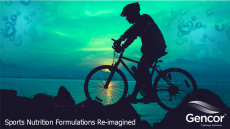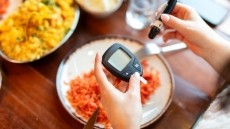More support for grape seed extract's heart benefits
free radical damage of blood vessel cells by about 75 per cent,
says new research to be presented this week.
Known as Masquelier's Original OPCs (oligomeric proanythocyanidins), Anthogenol, the Vitis vinifera seed extract is a rich source of antioxidants such as catechins and 2-5 flavan-3-ols.
The results, to be presented this week at the 14th International Inflammation Research Association Conference in Maryland, USA, show that endothelial cells, the cells that line the inner walls of blood vessels, grown in the presence of OPCs were more resistant to oxidative stress due to cumene hydroperoxide (CumOOH).
Oxidative stress of endothelial cells can cause inflammation, hardening of the walls of the arteries (atherosclerosis), and cardiovascular disease (CVD) - the cause of almost 50 per cent of deaths in Europe.
The researchers, led by Dr. Jan Andries Post from the University of Utrecht in the Netherlands, grew the cells in the presence of varying doses of OPCs for varying times, and afterwards washed and exposed to CumOOH, a strong oxidizing agent.
Dr. Post and his co-workers report that pre-incubation of the cells with OPCs prior to exposure to CumOOH protected the endothelial cells in a dose-dependent manner. Indeed, the 60 microgram per millilitre dose of OPC decreased lipid oxidation after exposure to the highest CumOOH dose (50 micromoles) by 75 per cent, compared to no OPC.
"We were impressed to see such significant direct proof that this water-soluble product is so evidently active as an antioxidant in the lipid phase," said Dr. Post.
"Some antioxidants, such as vitamin C, work in the aqueous phase, others such as vitamin E, work in the lipid phase. This versatile natural compound obviously works in both phases, which is a remarkable and rather unique feature for a phyto-nutrient."
Supplier of the extract, International Nutrition Company (INC), have previously sponsored research that reported that linked the antioxidant nature of the extract to a wide range of health benefits, including sparing vitamin C, reducing inflammation and allergy responses, and slowing the oxidative stress associated with aging.
INC chairman, Bert Schwitters, said the product's inventor, Dr. Masquelier, always said that OPCs had a primary role in protecting against oxidation of unsaturated fatty acids, although he never got around to demonstrating this effect.
"This effect has now been unequivocally substantiated and this will help us add new and product-specific health claims the numerous claims we can already make.
"Moreover it makes our product an important dual approach in the hands of consumers who care about controlling oxidative stress with an eye on long-term cardiovascular health," he said.
Most studies have shown a benefit of OPCs with doses in the range of 100 to 300 milligrams a day, with the company recommending doses of 100 to 200 mg per day.
According to data from the US Department of Agriculture, a healthy diet should provide an adequate intake of OPCs, but studies have suggested that intake of an average diet is only about 25 mg per day.













